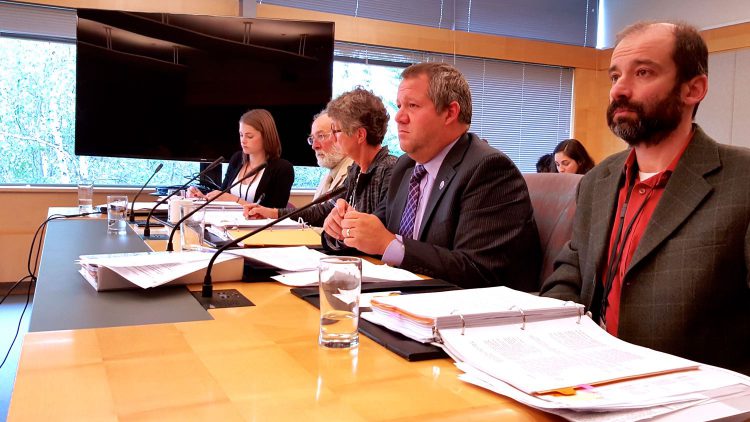A committee examining the territory’s new Mental Health Act says it won’t fix everything and substantial gaps in care remain.
The new legislation was pushed through as one of the territorial government’s last acts prior to November’s election, replacing an inadequate Mental Health Act first introduced in the 1980s.
However, a committee of MLAs has warned that even the new act fails to address some key areas of concern.
For example, the committee says the act “is silent on the topic of addictions and substance abuse [adjudged to be outside the legislation’s remit], even though these problems often co-exist with psychiatric disorders”.
The committee’s report, released last week, continues: “It is ironic that, despite its official title, the Bill defines a ‘mental disorder’ but does not define ‘mental health’.
“In the words of one NWT resident, ‘what we need is a companion act for the Mental Health Act. This here is a Mental Illness Act. We need a Mental Wellness Act. There’s a bit of funding here and there, but it’s really just a patchwork of services.'”
Read: Will new Mental Health Act do enough to help NWT’s youth?
The committee spent weeks touring the Northwest Territories to hear views on the proposed legislation from residents, before it became law.
At one such public hearing, health minister Glen Abernethy promised the new Mental Health Act would “fill gaps in our current mental health system and modernize the current mental health framework”.
However, the committee examining the act expressed skepticism.
“The committee agrees that there are gaps in the system, but does not agree that new legislation will address them all. In fact, this sort of claim only generates false expectations,” states the report.
“As legislation goes, Bill 55 is better than the existing act. But by itself, new legislation offers no guarantee of better services. Accordingly, if this report contains a primary take-home message, it is that new legislation is not the cure-all solution.
“By way of illustration, the committee learned that the department’s implementation plans include spending an additional $500,000 annually on new positions at headquarters, with no new allocations for services in the communities. Under such circumstances, the scope of positive change will be modest at best.”
Read: Health minister orders review of Timothy Henderson’s death
The committee claims stronger political will, better leadership and much more funding will be needed in order for the territory’s mental health services to truly become effective.
Furthermore, the report wonders how the territory will deliver many of its promised services while vacancy rates remain high in some areas.
As an example, the committee highlights vacancy rates of 30 percent in front-line positions with the territory’s community counselling program.
“Three of these so-called permanent positions – in Wekweti, Aklavik, and Fort Resolution respectively – have been vacant for five consecutive years,” notes the report. “With such inconsistent coverage, the number of resulting service failures is virtually incalculable.
“This is unacceptable. The department must renew its efforts to recruit and retain qualified workers.”
Read: Health minister and First Nation at odds over addictions help
The new Mental Health Act introduces assisted community treatment, or ACT – a form of treatment where psychiatric care is provided while patients return to their communities, rather than keeping them within a facility.
The committee raises several concerns about assisted community treatment, pointing to a 2012 review of Ontario’s legislation that failed to produce conclusive evidence of its benefits – though the report does note that ACT is now widespread throughout other Canadian jurisdictions.
“Because the department has no plans to bolster resources in the communities, this option will only be available where sufficient resources already exist: in Yellowknife and, potentially, regional centres,” the report argues.
“Patients from small communities will either have to forfeit this treatment option or live away from home.”
The committee asks the new territorial government to provide a “comprehensive response” to its report by June 2016.





